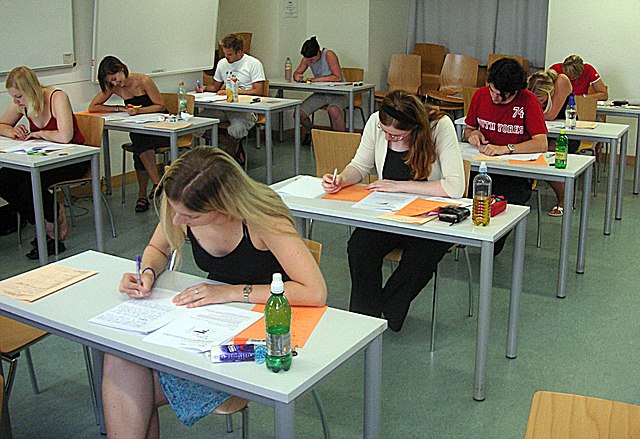Every year, students study for hours each night before final exams. When it’s time to take the final exam, they are running on around five hours of sleep and caffeine, becoming highly stressed out.
Final exams are tests at the end of each semester covering all the material from the class. They account for 10% to 20% of the student’s final grade. The school board can take a load off of students by implementing a no-harm final policy.
Students have assignments and tests all semester that can track their understanding of the course, and their grades reflect that. A student could work hard all semester for a 90% in a class and get an 85% on the exam, which would move the hardworking student’s grade down a letter grade.
“Final exams don’t measure a student’s understanding but rather how well a student can memorize material. Final exams allow no room for real-life application; they make students rememorize material just for it to be forgotten the next day,” said The Communicator.
In other words, final exams track students’ ability to memorize material for the exam, not how well they understand the class. Rememorizing material doesn’t help much in the long run.
Final exams also make for a stressful and overwhelming week for students.
“The weight of impending exams, assignments and projects can lead to heightened anxiety levels among students,” said Honors Society.
Essentially, this demonstrates that final exams are stressful for students and can cause them to be anxious.
As a high schooler myself, finals week can be some of the most stressful days of the year and cause my anxiety to skyrocket. Rememorizing topics from months ago, time management and the fear of failure all contribute to stress during finals week.
Students during finals week are often exhausted. They stay up late studying, can’t fall asleep due to stress and anxiety and usually cannot perform their best due to lack of sleep and other factors.
“All-night study sessions and irregular sleep patterns can quickly deplete their energy reserves, impair cognitive functioning and compromise overall well-being,” Honors Society said.
As a result, students will not have enough energy to perform their best on the exam. Taking a long and major test cannot be done well under these conditions; therefore, the student will not show their proper understanding of the course.
Some say final exams can prepare students for high school and teach students lessons and skills for the future.
“Final exams provide an important gateway for students to realize their proficiency in the field when choosing an academic career beyond high school and help prepare themselves to grow as learners who will soon face bigger examinations in the future,” said The Huran Emery.
This supports the idea that final exams will prepare students for their future careers and help them with important upcoming tests.
I agree that final exams can prepare young students for the future, but students will still get to experience final exams with an optional final policy. Students struggling with anxiety and sleep deprivation or students memorizing the material will not benefit from final exams and forget the material after taking the exam.
In order for students to perform their best and have a greater shot at achieving their high school goals, the school board needs to implement a no-harm final policy to help students with mental health and sleep deprivation, getting students the grades they deserve in the class.









